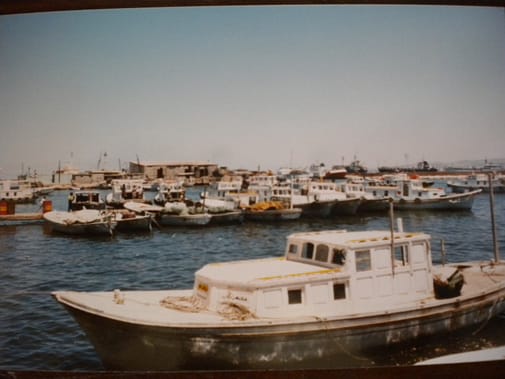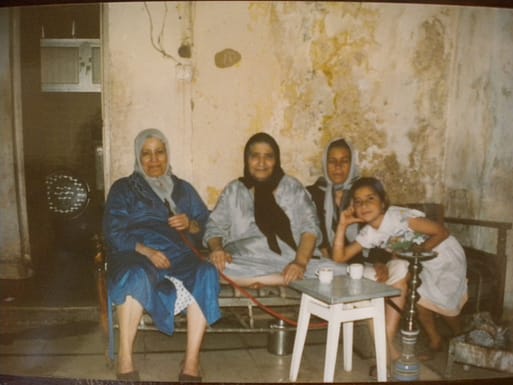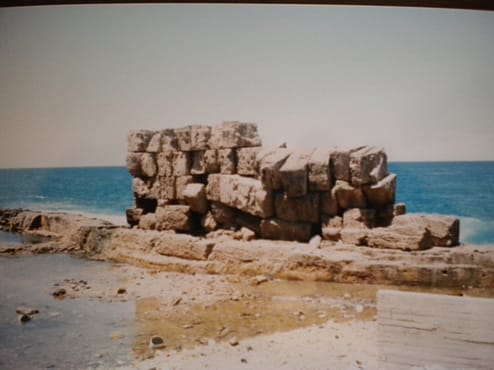Leaving the Syrian coast the boat bounces over the waves to the island of Arwad. Despite the relentless heat, the dust in the creases of my elbows and my queasy stomach, I find myself riding high on a crest of previously unknown happiness. Feeling the salt spray on the back of my hand I am certain that this is bliss; a moment of pure, effortless joy.

Arwad is tiny, a labyrinth of alleys hemmed by whitewashed walls. I meet some children who take me to their home. Their father shows me carved stone features in their kitchen; reminiscent of medieval churches, perhaps the family’s ancestors had reused some abandoned ecclesiastical masonry.
In the main room, three aunts sit on a couch in their nightdresses, enjoying a water pipe. We share smiles and nods and cups of sweet, black coffee. I curse my lack of Arabic.

Through the window the Mediterranean holds a mirror to the sky and star-like sun glints glisten on the water. The island seems surrounded by ships plying their wares on this inland sea as they have done since the Phoenicians opened the trade routes to the west centuries ago. At this moment, in those kind women’s house, it seems that everything was exactly as it should be.
But the briny breeze softly beckons me on.
I wander down to the shore and watch the boat builders near the old Phoenician stone wall. A group of men are dancing to a boy beating a rhythm on a broken bucket base, their bodies arching and rolling like the waves. Nearby several hulks of wooden ships are being scraped down.

I move on to the Arab fort where centuries ago, guards-on-duty scanned the sea for Crusader ships. Far from the heat and clamour of the island, a bench among the hibiscus and oleander in tall terracotta pots invites me over.
I sit in that tranquil courtyard with closed eyes, utterly content.
